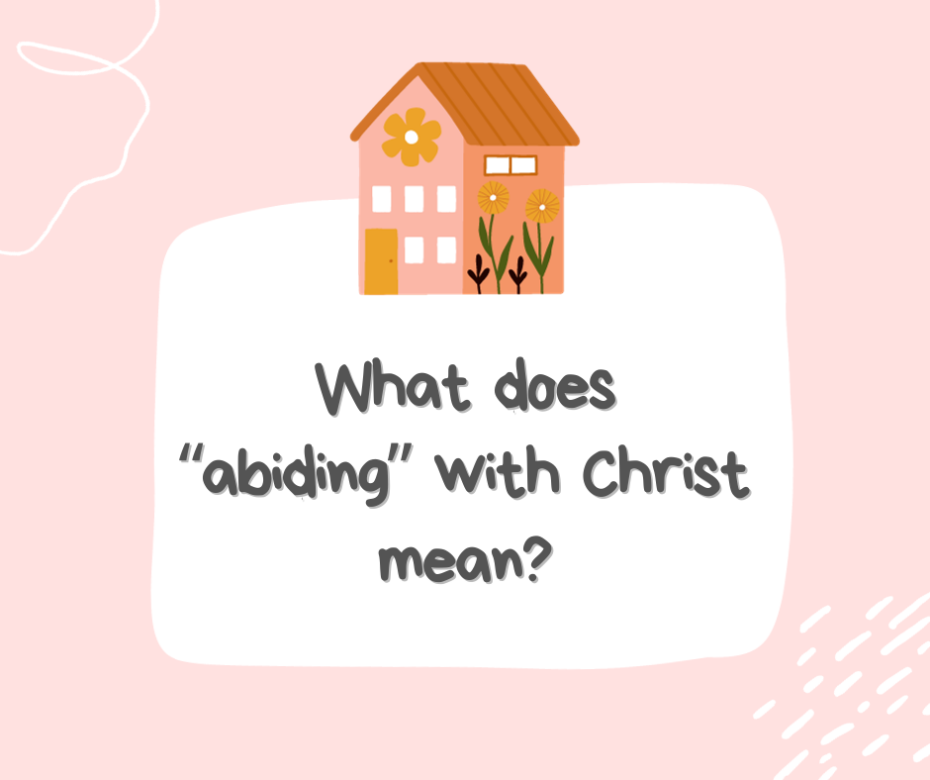In John 15:5, the Lord says, “I am the vine, you are the branches. He who abides in Me, and I in Him, bears much fruit.” This verse is often used by Bible teachers, preachers, and even seminary professors, to argue that all believers bear spiritual fruit. They maintain that “abiding in Christ” is the same as “being a Christian.” It is argued that since all believers “abide” in Christ, all believers will walk in obedience and produce good fruit. If you are not living a holy life, then you are not abiding in Christ and therefore you are not a believer. You will go to hell. It is a good idea, then, to look at yourself to see if you are producing that fruit. If you are not bearing “much” fruit (by being obedient to the Lord), you should worry about your salvation.
Free Grace people, on the other hand, point out how absurd such a view is. The Lord is talking about bearing fruit, not about how we know whether or not we are saved. This is an issue of Christian living, not of eternal salvation. In John 15 Christ is talking to the eleven disciples, all of whom have eternal life. When He tells them to abide in Him, He is not talking about being saved. Abiding in Him means intimacy with Him. He wants to be at home with them. That is what the verb abide means. If the Lord is at home with a believer, he will produce the spiritual fruit that He desires. Abiding with the Lord means being in fellowship with Him. A believer can be in fellowship with Him, but he can also choose not to be in fellowship with Him. The disobedient believer is not in intimate fellowship with Christ.
There is a great illustration of this spiritual truth in 2 Kgs 25:8-17. These verses recount the destruction of the temple in Jerusalem by the Babylonian army. They burn the building to the ground. Then they take all the furniture of the temple away to Babylon.
This temple was highly symbolic to the Jews. It was a symbol of great national pride. But it was more than that. It also symbolized that God was dwelling in the midst of His people. It was His house. When it stood, it meant that He was at home with them. He was in fellowship with them. He was there to bless them.
But the nation had fallen deeply into sin. God had told the people that if this happened, He would have them taken away to another land as captives. In other words, if they did not bear the fruit He expected—if they walked in disobedience—their city would be destroyed. That included the temple.
It was at the temple that the people were to worship God. It was there that they made sacrifices that covered their sins. This forgiveness of sins made continued fellowship with Him possible. This forgiveness would allow God to bless His people.
What did the destruction of the temple signify? Obviously, the people were not in fellowship with Him. They were not abiding in Him. He was no longer dwelling–that is, He was no longer at home–with His people.
But were they still His people? Absolutely. We know the rest of the story. His people returned from captivity and rebuilt the temple. This was a picture of restored fellowship. God was once again abiding in the midst of His people. He was at home with them.
When a believer today is walking in disobedience, he is not abiding in Christ. He is still a believer, but the Lord is not at home with that believer. In such a state, he will not be able to produce any spiritual fruit.
Eternal life can never be lost. But the Christian living a disobedient life is one with whom Christ is not at home. It is an ugly picture. You can read about how that looks in 2 Kgs 25:8-17. It looks like a beautiful building that has been burned down and its furniture carried away.


